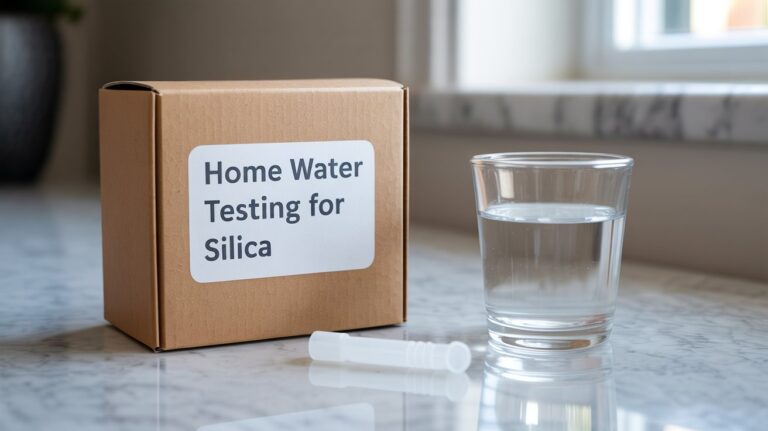Are Faucet Filters Really Effective?
Did you know that millions of Americans are turning to faucet filtration systems to improve their drinking water quality? With the increasing concern over contaminants in tap water, it’s no wonder that these systems are gaining popularity.
Faucet filters promise to remove impurities, improve taste, and provide a healthier drinking experience. But do they really work as claimed? As we explore the effectiveness of faucet filters, we’ll examine the benefits they offer and what to look for in the best faucet filters.
Key Takeaways
- Understanding the purpose and benefits of faucet filters.
- Assessing the effectiveness of faucet filtration systems.
- Identifying key features of the best faucet filters.
- Exploring the impact of faucet filters on drinking water quality.
- Evaluating the advantages of using faucet filters.
The Growing Popularity of Faucet Filters
The installation of faucet filters has seen a significant surge in recent years due to growing concerns over water quality. As people become more aware of the contaminants present in their tap water, they are seeking effective solutions to ensure clean drinking water.
Why Americans Are Installing Faucet Filters
Americans are installing faucet filters primarily due to concerns over the safety and taste of their tap water. With reports of contaminants such as lead, chlorine, and other harmful substances, faucet filters offer a practical solution.
Common Water Quality Concerns in the US
Water quality concerns in the US vary, with both municipal water and well water presenting unique challenges.
Municipal Water Issues
Municipal water can contain contaminants like chlorine, lead, and bacteria. Faucet filters can effectively remove these impurities.
Well Water Challenges
Well water, on the other hand, may contain nitrates, heavy metals, and bacteria. Faucet filters can also address these concerns.
| Water Type | Common Contaminants | Faucet Filter Benefits |
|---|---|---|
| Municipal Water | Chlorine, Lead, Bacteria | Removes impurities, improves taste |
| Well Water | Nitrates, Heavy Metals, Bacteria | Removes contaminants, ensures safety |
Understanding How Faucet Filters Work
To understand the effectiveness of faucet filters, it’s crucial to explore how they work. Faucet filters are designed to improve water quality by removing contaminants and impurities directly from the faucet.
The Filtration Mechanism Explained
The filtration mechanism in faucet filters typically involves a multi-stage process. Water flows through different types of filter media, each designed to capture specific types of contaminants.
Common Components in Faucet Filters
Faucet filters consist of several key components, including filter media and housing and connection systems.
Filter Media Types
- Activated Carbon: Effective against chlorine, taste, and odor.
- Ion Exchange Resins: Useful for removing heavy metals and other ions.
- Reverse Osmosis Membranes: Capable of removing dissolved solids and other impurities.
Housing and Connection Systems
The housing of a faucet filter is typically designed to be durable and easy to clean. Connection systems vary, with some filters attaching directly to the faucet, while others may require additional adapters.
| Filter Type | Contaminants Removed | Maintenance Needs |
|---|---|---|
| Activated Carbon | Chlorine, Taste, Odor | Replace every 2-3 months |
| Reverse Osmosis | Dissolved Solids, Heavy Metals | Replace membrane every 6-12 months |
Types of Faucet Filters Available Today
The variety of faucet filters available today can be overwhelming, but understanding their differences is key to making an informed decision. Faucet filters are not one-size-fits-all solutions; they come in different types, each designed to address specific water quality concerns.
Activated Carbon Filters
Activated carbon filters are among the most common types of faucet filters. They are effective at removing chlorine, improving taste, and reducing volatile organic compounds (VOCs). These filters work by attracting and holding contaminants in their porous surface.
Reverse Osmosis Attachments
Reverse osmosis (RO) attachments provide a more comprehensive filtration solution. They use a semipermeable membrane to remove a wide range of contaminants, including dissolved solids, bacteria, and viruses. RO systems are known for their ability to produce very pure water.
| Filter Type | Key Features | Contaminants Removed |
|---|---|---|
| Activated Carbon | Improves taste, reduces VOCs | Chlorine, VOCs |
| Reverse Osmosis | Highly effective, comprehensive filtration | Dissolved solids, bacteria, viruses |
Ion Exchange Filters
Ion exchange filters work by exchanging ions in the water for other ions, typically to remove heavy metals or soften water. They are effective in reducing contaminants like lead and mercury.
Combination Filtration Systems
Combination systems integrate multiple filtration technologies, such as activated carbon and reverse osmosis, to provide a robust filtration solution. These systems offer the benefits of multiple filtration methods in one unit.
What Contaminants Can Faucet Filters Remove?
Understanding what contaminants faucet filters can remove is essential for making informed decisions about drinking water quality. Faucet filters are designed to eliminate a variety of contaminants that can affect the taste, odor, and safety of drinking water.
Common Contaminants Targeted
Faucet filters are effective against several common contaminants found in tap water. These include:
Chlorine and Taste/Odor Compounds
Many faucet filters are designed to remove chlorine and other compounds that can give water an unpleasant taste or odor. By removing these contaminants, faucet filters can significantly improve the overall quality of drinking water.
Heavy Metals
Some faucet filters are also capable of removing heavy metals such as lead, mercury, and cadmium. These metals can be harmful to human health, and their removal is a significant benefit of using faucet filters.
Limitations in Filtration Capabilities
While faucet filters can remove many contaminants, they are not a solution for all water quality issues. For example, some faucet filters may not be effective against certain dissolved solids or nitrates. Understanding these limitations is crucial when choosing a faucet filter.
Certification Standards to Look For
When selecting a faucet filter, it’s essential to look for certification from reputable third-party organizations. These certifications ensure that the filter meets certain standards for contaminant removal. Some of the key certification standards include NSF International and the Water Quality Association.
| Certification | Description | Contaminants Removed |
|---|---|---|
| NSF International | Sets standards for water quality and treatment | Chlorine, Lead, VOCs |
| Water Quality Association | Certifies water treatment products | Heavy Metals, Pharmaceuticals |
By understanding what contaminants faucet filters can remove and looking for the right certifications, consumers can make informed decisions about their drinking water quality.
Are Faucet Filters Effective for Everyday Use?
Many homeowners are turning to faucet filters to address their water quality concerns. But the question remains: are faucet filters effective for everyday use?
Real-World Performance Data
Faucet filters have shown promising results in real-world testing. Studies have indicated that they can remove a significant amount of contaminants from drinking water.
| Filter Type | Contaminant Removal | Maintenance Needs |
|---|---|---|
| Activated Carbon | Chlorine, Lead, VOCs | Replace every 2-3 months |
| Reverse Osmosis | Heavy Metals, Bacteria, Viruses | Replace membrane every 6-12 months |
Comparing Lab Results vs. Home Results
While lab results often show high efficacy, home use can vary based on water quality and filter maintenance. It’s essential to compare these results to understand the real-world effectiveness.
My Personal Testing Experience
In my experience, faucet filters have been effective in improving the taste and quality of drinking water. Regular maintenance is key to their continued effectiveness.
Overall, faucet filters can be a valuable addition to your home’s water filtration system, offering convenience and effective contaminant removal. By understanding their capabilities and limitations, you can make an informed decision about their use.
Faucet Filters vs. Other Filtration Methods
With so many water filtration options on the market, comparing faucet filters to pitcher filters, under-sink systems, and whole-house filtration can help you make an informed decision. Faucet filters offer a convenient and cost-effective solution for clean drinking water, but how do they stack up against other methods?
Comparing with Pitcher Filters
Pitcher filters are a popular choice for those who want a simple, low-cost filtration solution. However, they require frequent filter replacements and can be slow to filter water. In contrast, faucet filters provide instant filtered water and are generally more convenient.
Comparing with Under-Sink Systems
Under-sink systems offer comprehensive filtration but can be more expensive to install and maintain. They also require more space under the sink, which can be a drawback for some homeowners.
Comparing with Whole-House Filtration
Whole-house filtration systems provide comprehensive protection for all water sources in the home. However, they are typically more expensive to install and maintain than faucet filters.
Which Method Offers the Best Value?
The best value depends on your specific needs and budget. A comparison of the different methods is provided in the table below:
| Filtration Method | Cost | Convenience | Effectiveness |
|---|---|---|---|
| Faucet Filters | Moderate | High | Effective |
| Pitcher Filters | Low | Low | Moderately Effective |
| Under-Sink Systems | High | Moderate | Very Effective |
| Whole-House Filtration | Very High | Low | Extremely Effective |

As shown in the table, faucet filters offer a balance of cost, convenience, and effectiveness, making them a popular choice for many consumers.
The Benefits of Using Faucet Filters
The advantages of using faucet filters are multifaceted, ranging from convenience to environmental benefits. These filters have become increasingly popular due to their ability to improve drinking water quality while offering several other advantages.
Convenience and Accessibility
Faucet filters are easy to install and use, providing immediate access to clean drinking water. They are a convenient solution for households looking to improve their water quality without significant upfront costs or complex installations.
Cost-Effectiveness Over Time
While the initial cost of a faucet filter may seem like an expense, it proves to be cost-effective in the long run. By reducing the need for bottled water, households can save money over time.
Environmental Impact Considerations
Faucet filters contribute to a reduction in plastic waste by minimizing the need for bottled water. This shift can significantly impact the environment positively.
Plastic Waste Reduction
By using faucet filters, households can reduce their reliance on single-use plastic bottles, thereby decreasing plastic waste.
Energy Efficiency
Faucet filters are also more energy-efficient compared to other filtration methods, as they do not require the energy-intensive process of manufacturing and transporting bottled water.
| Benefits | Description | Impact |
|---|---|---|
| Convenience | Easy to install and use | Immediate access to clean drinking water |
| Cost-Effectiveness | Reduces need for bottled water | Saves money over time |
| Environmental Impact | Reduces plastic waste and energy consumption | Positive environmental impact |
Limitations and Drawbacks to Consider
Faucet filters are not without their drawbacks, including reduced flow rates and compatibility issues. While they offer numerous benefits, it’s essential to consider these limitations before making a decision.
Flow Rate Reduction
One of the primary concerns with faucet filters is the potential reduction in water flow rate. This can be particularly noticeable when using filters with a high level of filtration, such as reverse osmosis attachments.
Compatibility Issues with Certain Faucets
Not all faucet filters are compatible with every type of faucet. Some filters may not fit certain faucet designs, such as those with unusual thread sizes or aerator configurations.
Maintenance Requirements
Faucet filters require regular maintenance to ensure optimal performance. This includes replacing filter cartridges and cleaning the filter housing.
Aesthetic Concerns
Some users may find that faucet filters detract from the appearance of their sink area. The additional hardware and filter cartridges can be unsightly, particularly in modern kitchens with sleek designs.
| Filter Type | Flow Rate Reduction | Compatibility Issues | Maintenance Requirements |
|---|---|---|---|
| Activated Carbon | Moderate | Low | Regular cartridge replacement |
| Reverse Osmosis | High | Moderate | Frequent membrane replacement |
| Ion Exchange | Low | High | Periodic resin regeneration |
When choosing a faucet filter, it’s crucial to weigh these limitations against the benefits. By understanding the potential drawbacks, you can make an informed decision that suits your needs.
Consumer Reviews: What Users Really Think
Real users’ experiences with faucet filters offer a comprehensive view of their benefits and drawbacks. As consumers increasingly turn to these filters to improve their drinking water quality, their feedback provides valuable insights into the effectiveness of faucet filters in everyday use.
Positive Experiences with Faucet Filters
Many users have reported significant improvements in the taste and odor of their tap water after installing faucet filters. For instance, some have noted that the filters effectively remove chlorine and other contaminants, making their drinking water cleaner and fresher. Users have also appreciated the ease of installation and the convenience of having filtered water directly from their faucet.
Common Complaints and Concerns
Despite the positive experiences, some users have expressed concerns regarding the flow rate reduction and compatibility issues with certain faucet types. A few have also mentioned that the filters require regular maintenance to ensure optimal performance. It’s essential for consumers to consider these factors when choosing a faucet filter.
Long-Term Satisfaction Rates
Long-term satisfaction rates for faucet filters vary, with some users reporting continued satisfaction over extended periods. A review of consumer feedback reveals that satisfaction is often linked to proper maintenance and the quality of the filter. Users who regularly replace their filters tend to have better experiences.

By examining consumer reviews and comparing different faucet filters, potential buyers can make informed decisions about which product best suits their needs.
How to Choose the Right Faucet Filter
The process of picking the perfect faucet filter involves understanding your specific water quality needs. With so many options available, making an informed decision can be challenging.
Assessing Your Water Quality Needs
Before selecting a faucet filter, it’s essential to understand the quality of your tap water. You can start by checking your local water utility’s annual report or by using a water testing kit to identify contaminants present in your water.
Budget Considerations
Faucet filters vary significantly in price, depending on their features and filtration capabilities. Setting a budget will help narrow down your options. Consider not just the initial cost but also the ongoing expenses for replacement filters.
| Filter Type | Initial Cost | Maintenance Cost |
|---|---|---|
| Activated Carbon | $20-$50 | $5-$10/month |
| Reverse Osmosis | $100-$300 | $10-$20/month |
| Ion Exchange | $50-$150 | $5-$15/month |
Installation Requirements
Some faucet filters are easier to install than others. Consider whether you’re comfortable with DIY installation or if you prefer a model that requires professional installation.
Brand Reputation and Warranty
Opting for a reputable brand can ensure you’re getting a high-quality product. Additionally, look for a comprehensive warranty that covers parts and labor for a reasonable period.
By carefully considering these factors, you can choose a faucet filter that meets your needs and provides clean, safe drinking water.
Maintaining Your Faucet Filter for Optimal Performance
Maintaining your faucet filter is essential for ensuring it continues to perform optimally. Regular maintenance not only extends the life of the filter but also ensures the water quality remains high.
Recommended Replacement Schedules
Most faucet filters need to be replaced every 2-3 months, depending on usage and manufacturer’s guidelines. Regular replacement is crucial for maintaining water quality.
Cleaning and Care Tips
Some faucet filters can be cleaned, while others cannot. It’s essential to follow the manufacturer’s instructions for cleaning and maintenance to avoid damaging the filter.
| Filter Type | Replacement Interval | Cleaning Instructions |
|---|---|---|
| Activated Carbon | Every 2 months | Not recommended |
| Reverse Osmosis | Every 6-12 months | Follow manufacturer’s guide |
| Ion Exchange | Every 3-6 months | Regeneration possible |
Signs Your Filter Needs Attention
Reduced water flow or a change in taste or odor can indicate that the filter needs to be replaced or cleaned.
Maximizing Filter Lifespan
To maximize the lifespan of your faucet filter, ensure it is properly installed and maintained according to the manufacturer’s instructions. Regularly checking and replacing worn-out parts can also help.
“Regular maintenance of your faucet filter is not just about prolonging its life; it’s about ensuring the water you drink is clean and safe.”
Conclusion: Are Faucet Filters Worth It?
Faucet filters have emerged as a practical solution for improving water quality at the tap. By understanding how they work and comparing them to other filtration methods, it’s clear that faucet filters offer a convenient and cost-effective way to reduce common contaminants.
When comparing faucet filters to other systems, their ease of installation and maintenance stands out. While they may not remove as many contaminants as under-sink or whole-house systems, they provide a viable option for those seeking to improve drinking water quality without significant upfront costs.
The question of are faucet filters effective can be answered affirmatively. They are capable of removing chlorine, lead, and other impurities, improving the taste and safety of drinking water. However, their effectiveness depends on factors like filter type, maintenance, and initial water quality.
In conclusion, faucet filters are a worthwhile investment for many households. They strike a balance between effectiveness, convenience, and cost. By choosing the right filter and maintaining it properly, consumers can enjoy cleaner, better-tasting water directly from their taps.







